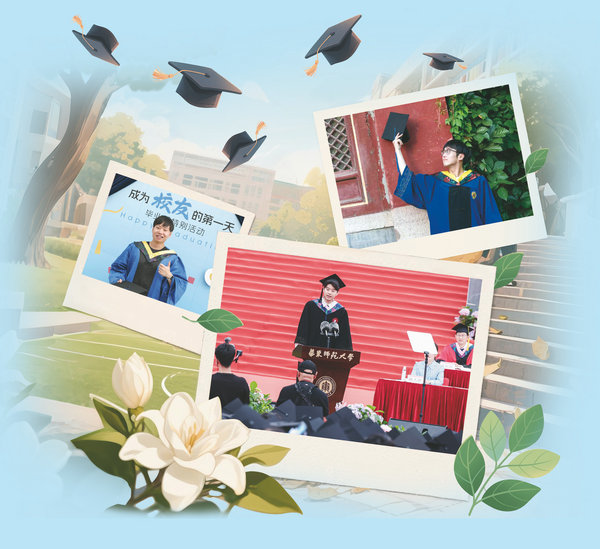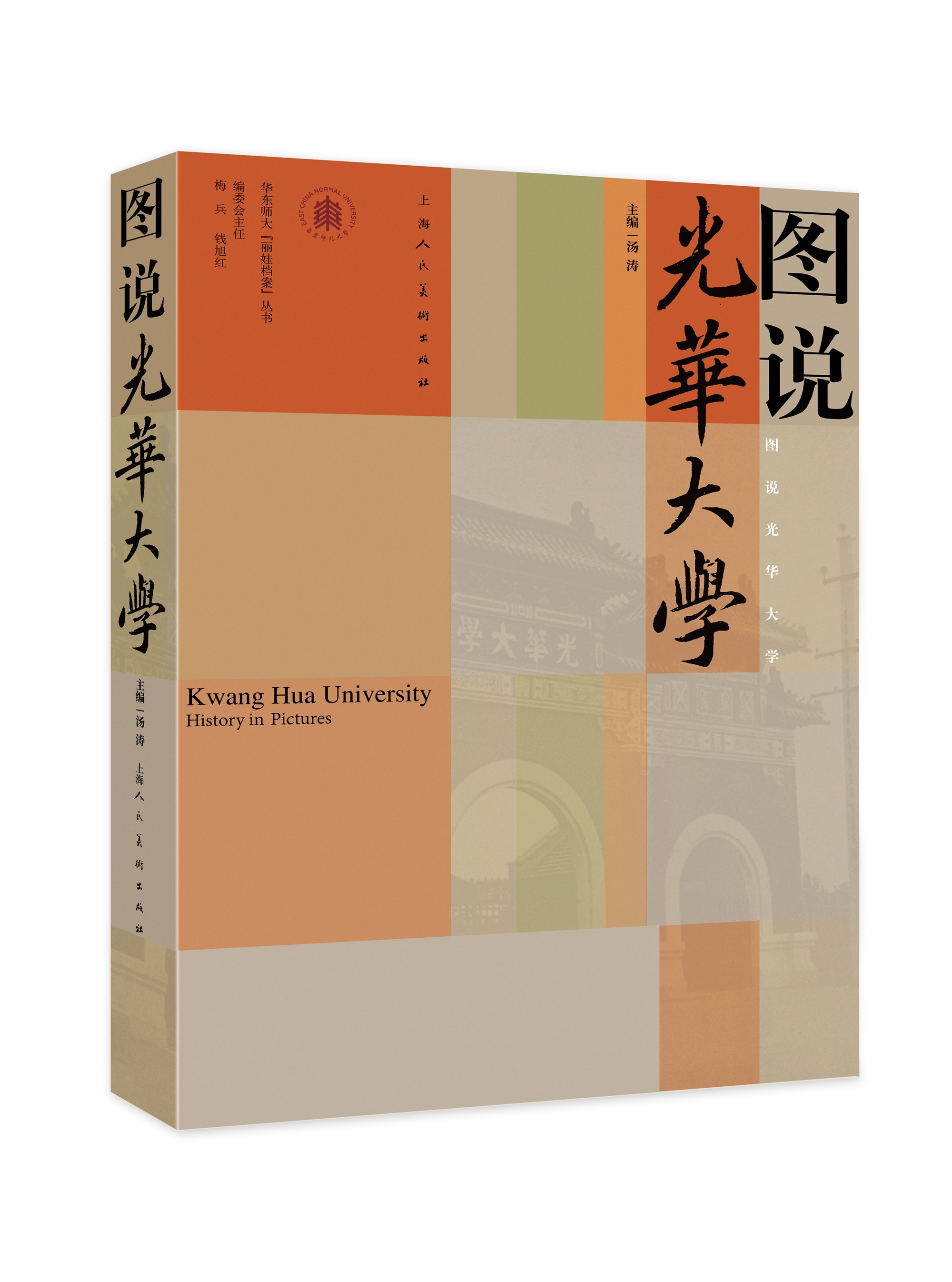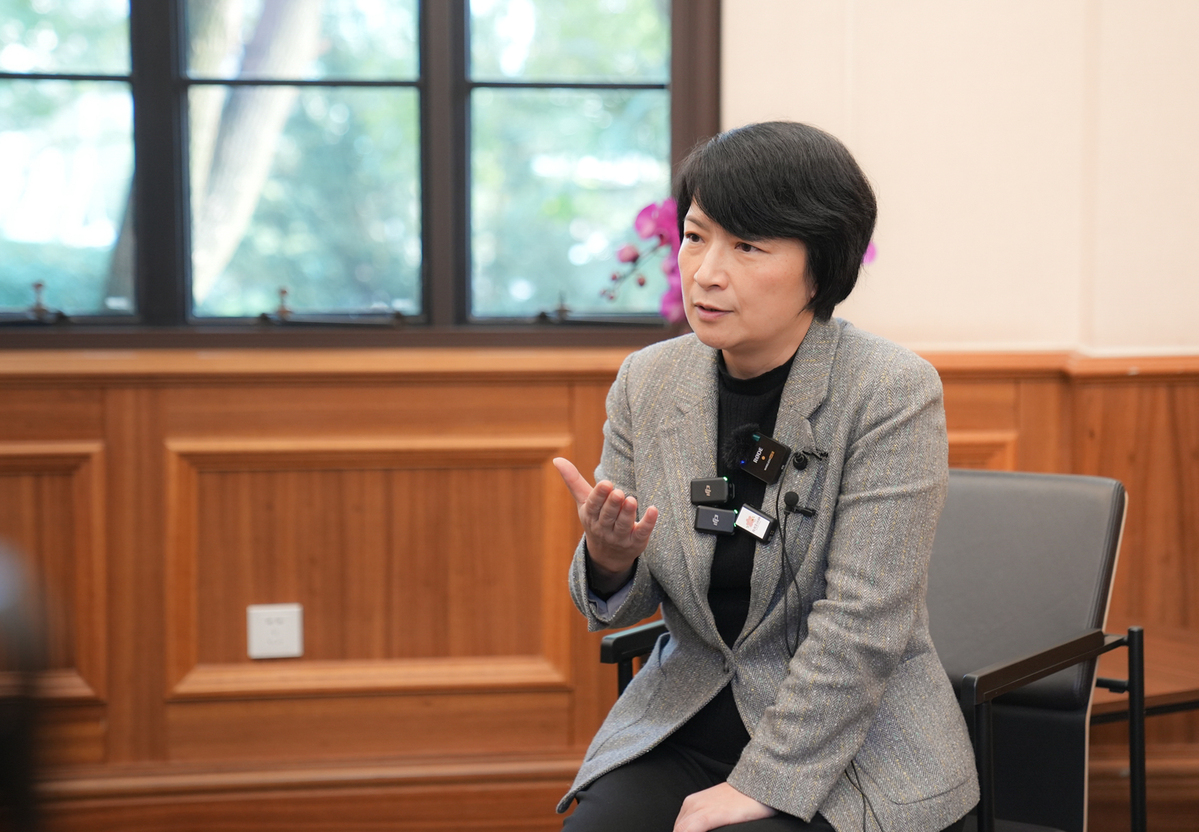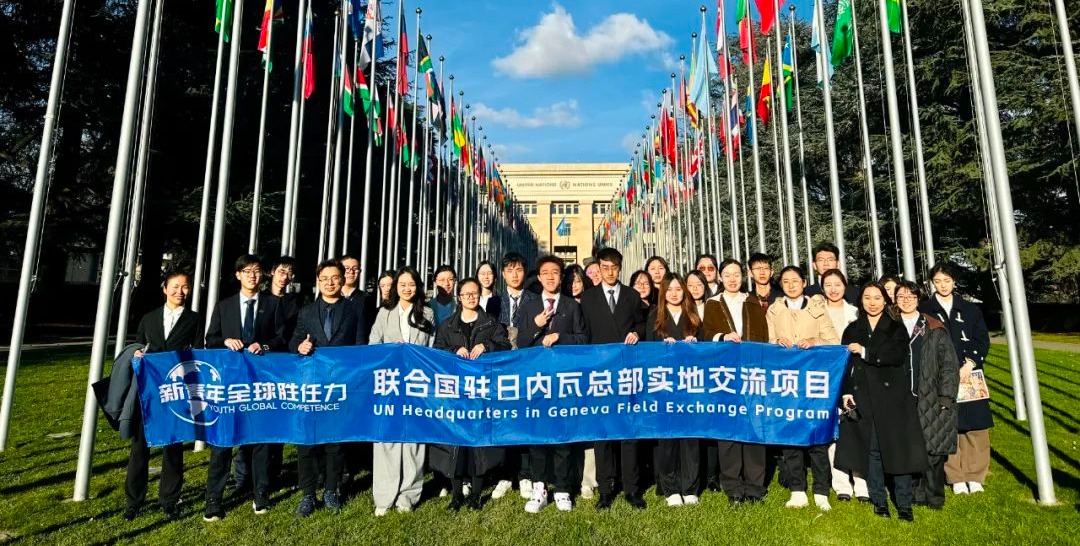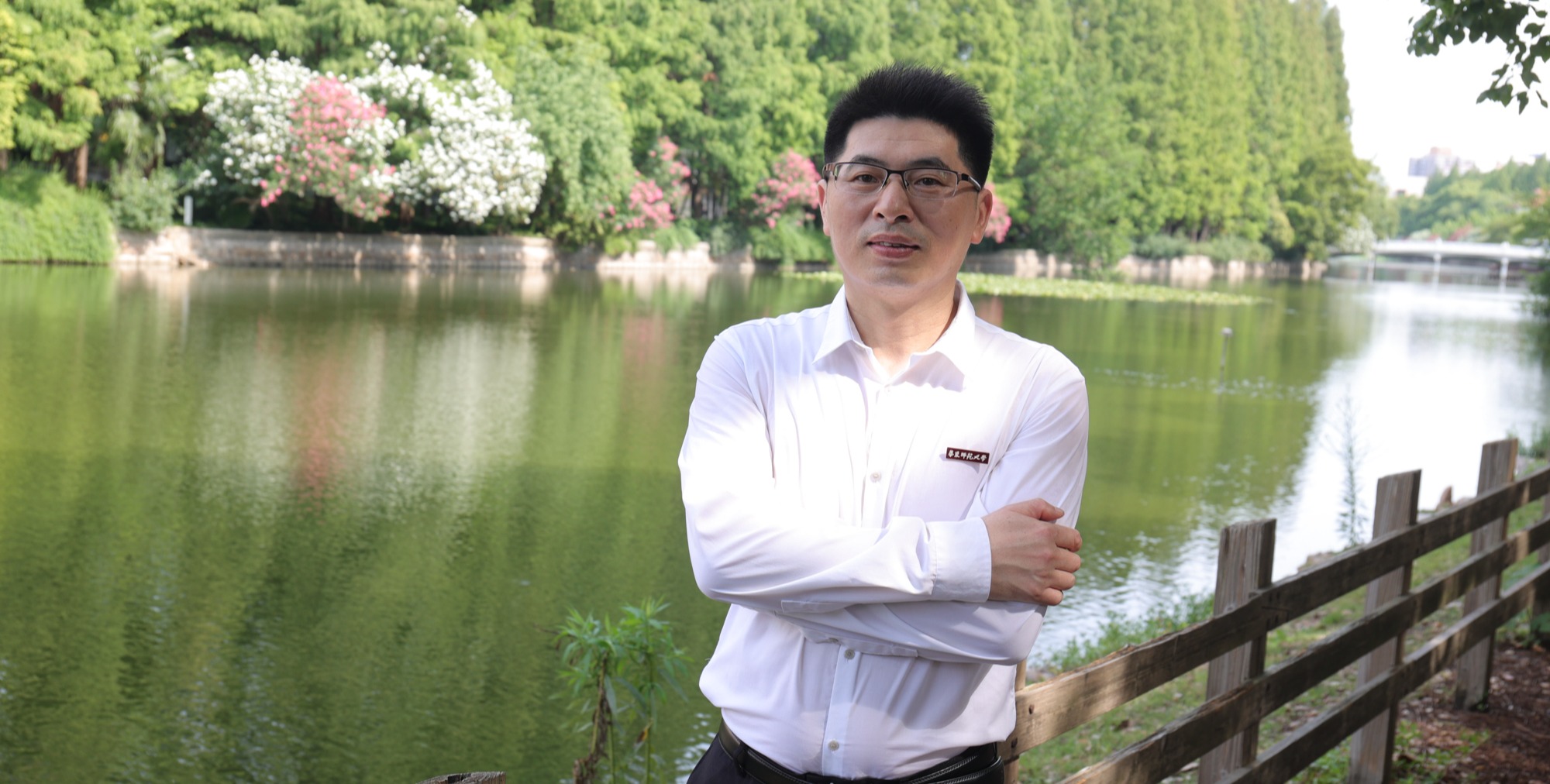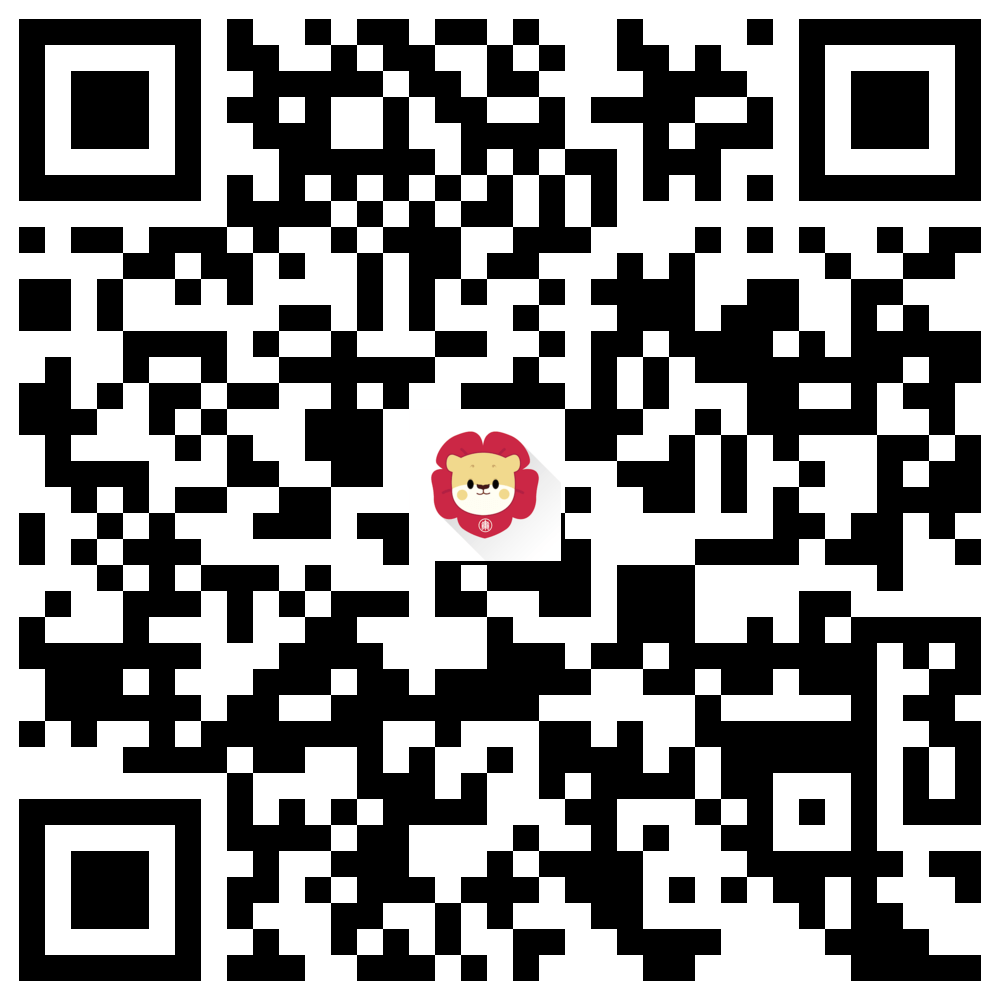30 October, three of the world's top-notch computer sequential logic researchers visited ECNU at the invitation of the School of Computer Science and Software Engineering.
In addition to engaging in dialogues with students about cutting-edge research in computer sciences, two of ECNU’s high-profile visitors, Joseph Sifakis and Moshe Y. Vardi, joined ECNU as honorary professors and received certificates of appointment from ECNU president Qian Xuhong. President Qian expressed that ECNU has been most impressed with their work on innovations in Artificial Intelligence (AI).
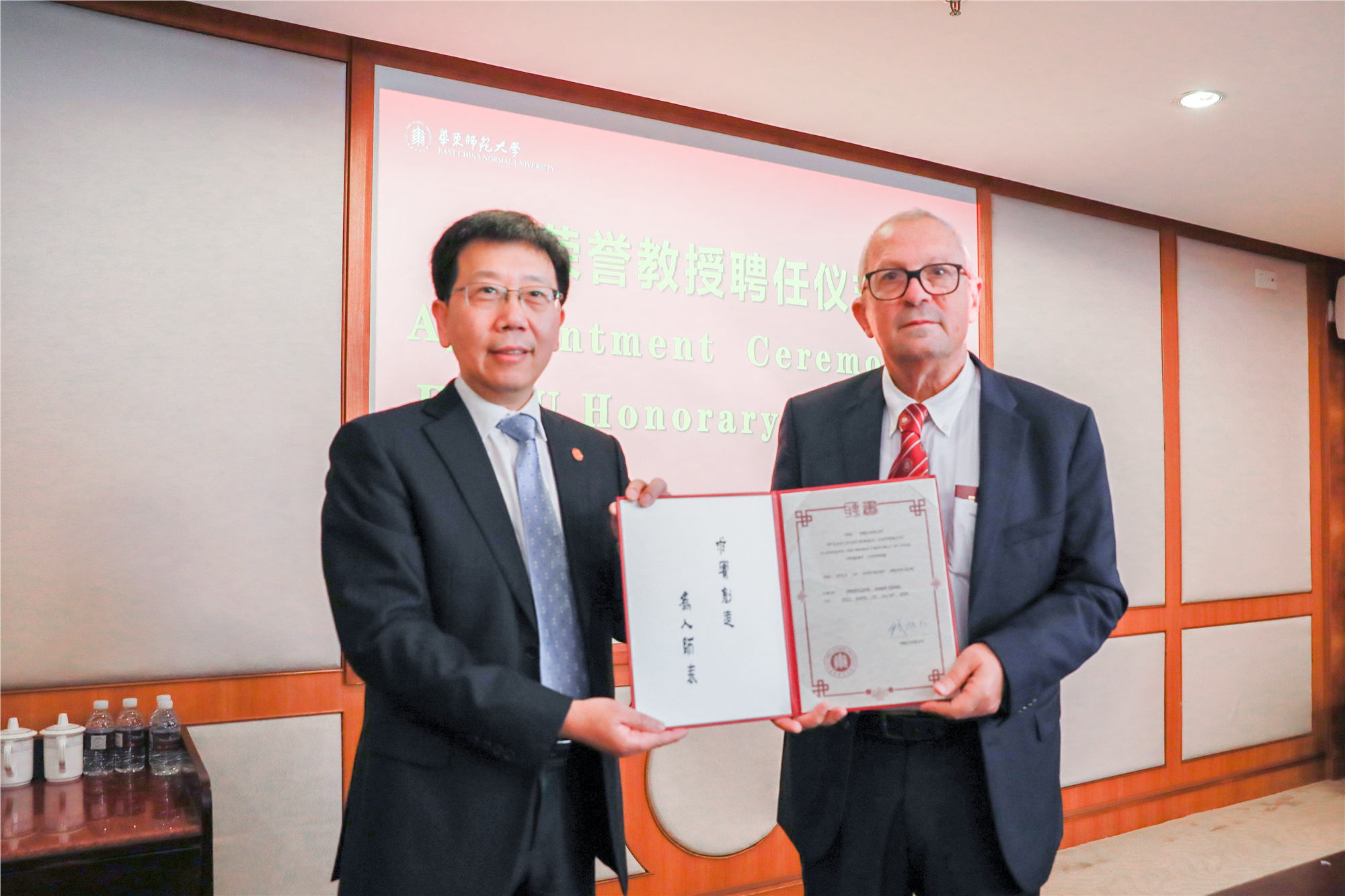
Joseph Sifakis receives certificates of appointment from ECNU president Qian Xuhong.
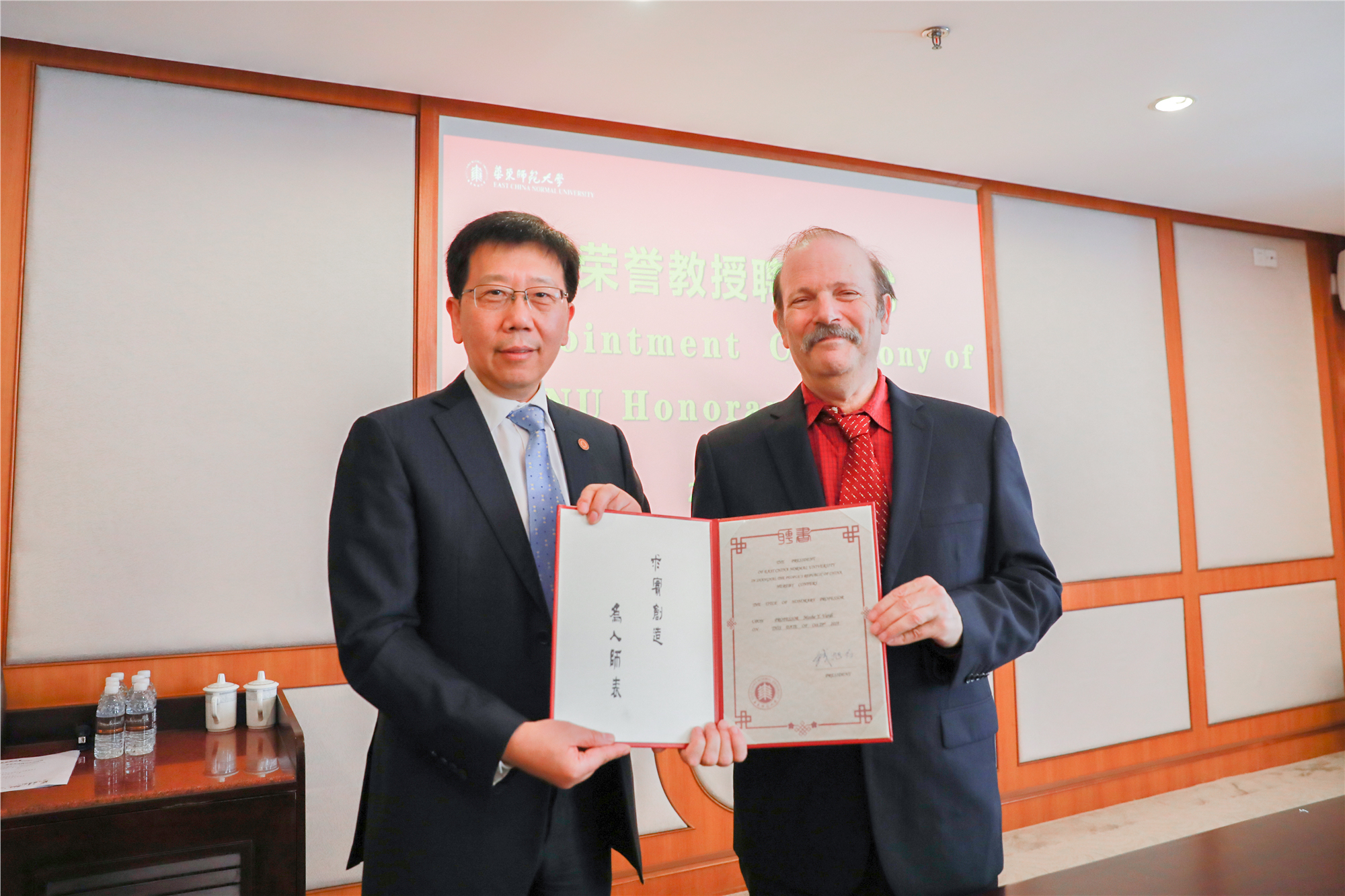
Moshe Y. Vardi receives certificates of appointment from ECNU president Qian Xuhong.
In his speech to award the newest honorary professors, President Qian said information science is gaining ground as one of ECNU’s top disciplines. The university has integrated all of its most advantageous resources in order to set up the Information Sciences Faculty, boost interdisciplinary integration in the field and build a high-level program to get more students interested in information sciences. He suggested that Sifakis and Vardi’s work on AI would be beneficial to ECNU’s information science programs.
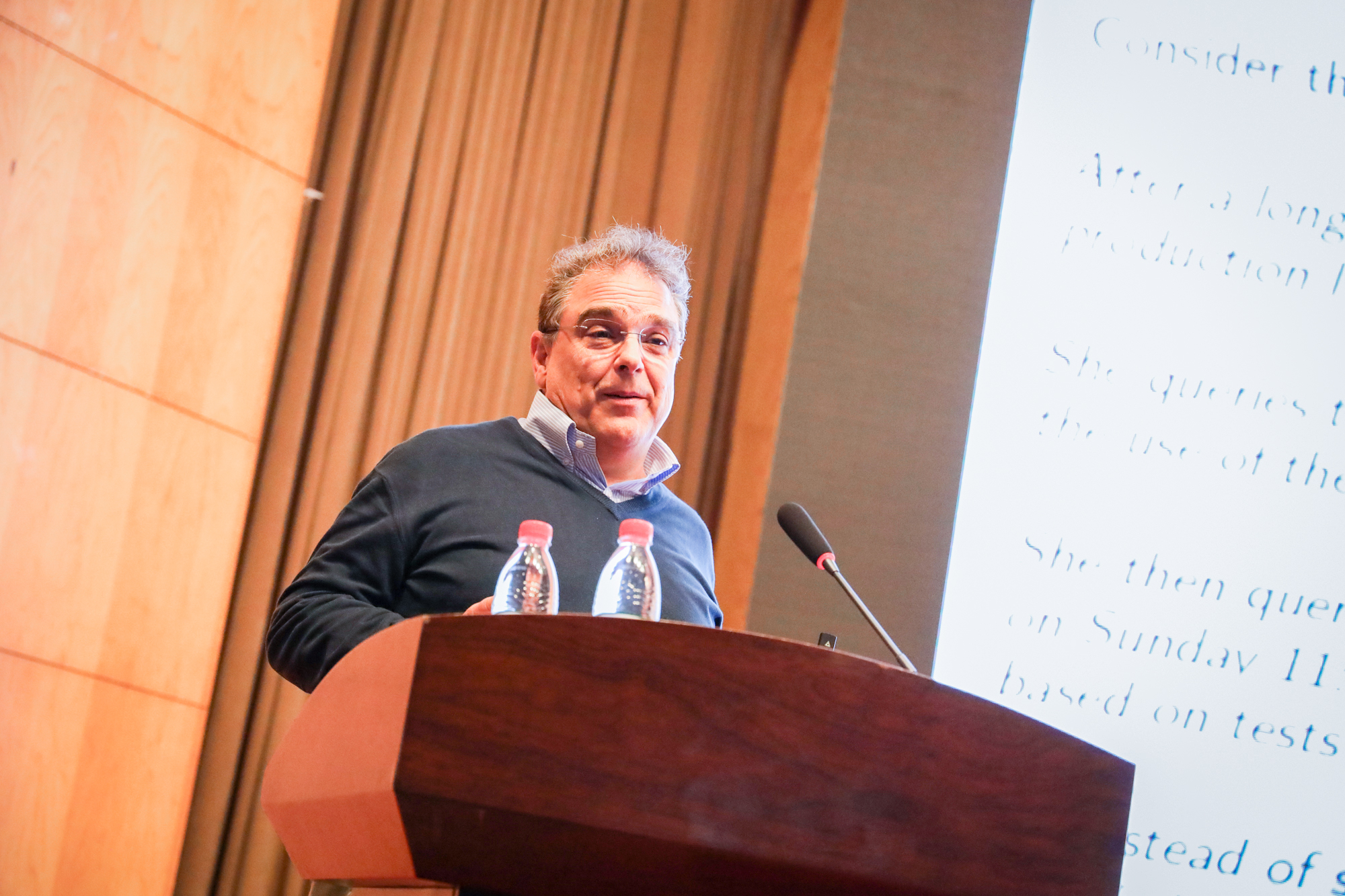
Giuseppe De Giacomo delivers his speech.
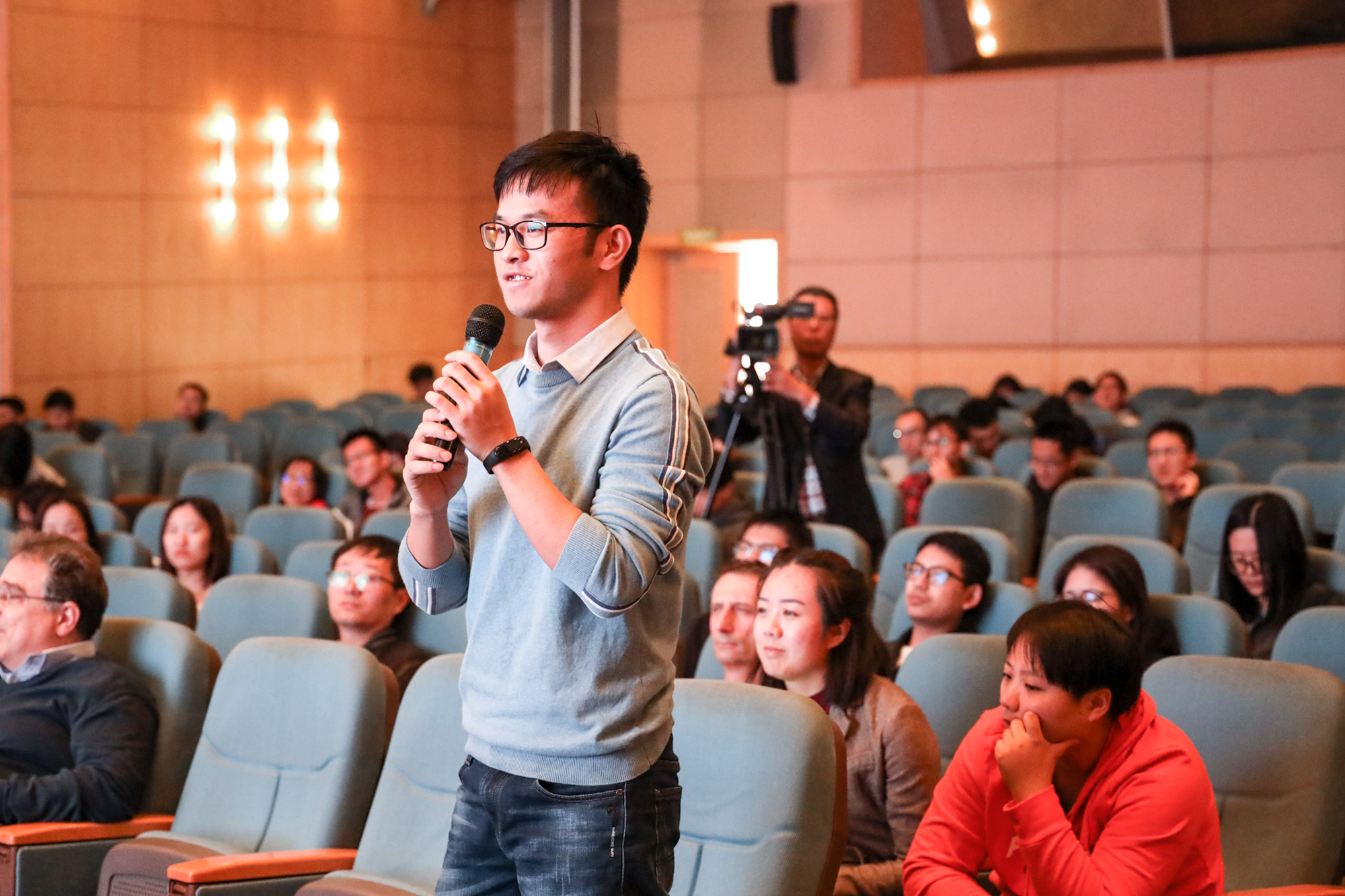
Q & A session.
Prof. Vardi was first to propose the theory on linear temporal logic and language expression, whereby he hypothesized that the ability of automata are of equal value to verification processes—his work is now the cornerstone of core technology for the mainstream verification field. He also worked with renowned Prof. Giuseppe De Giacomo to put forward a linear temporal logic on finite traces and AI applications.
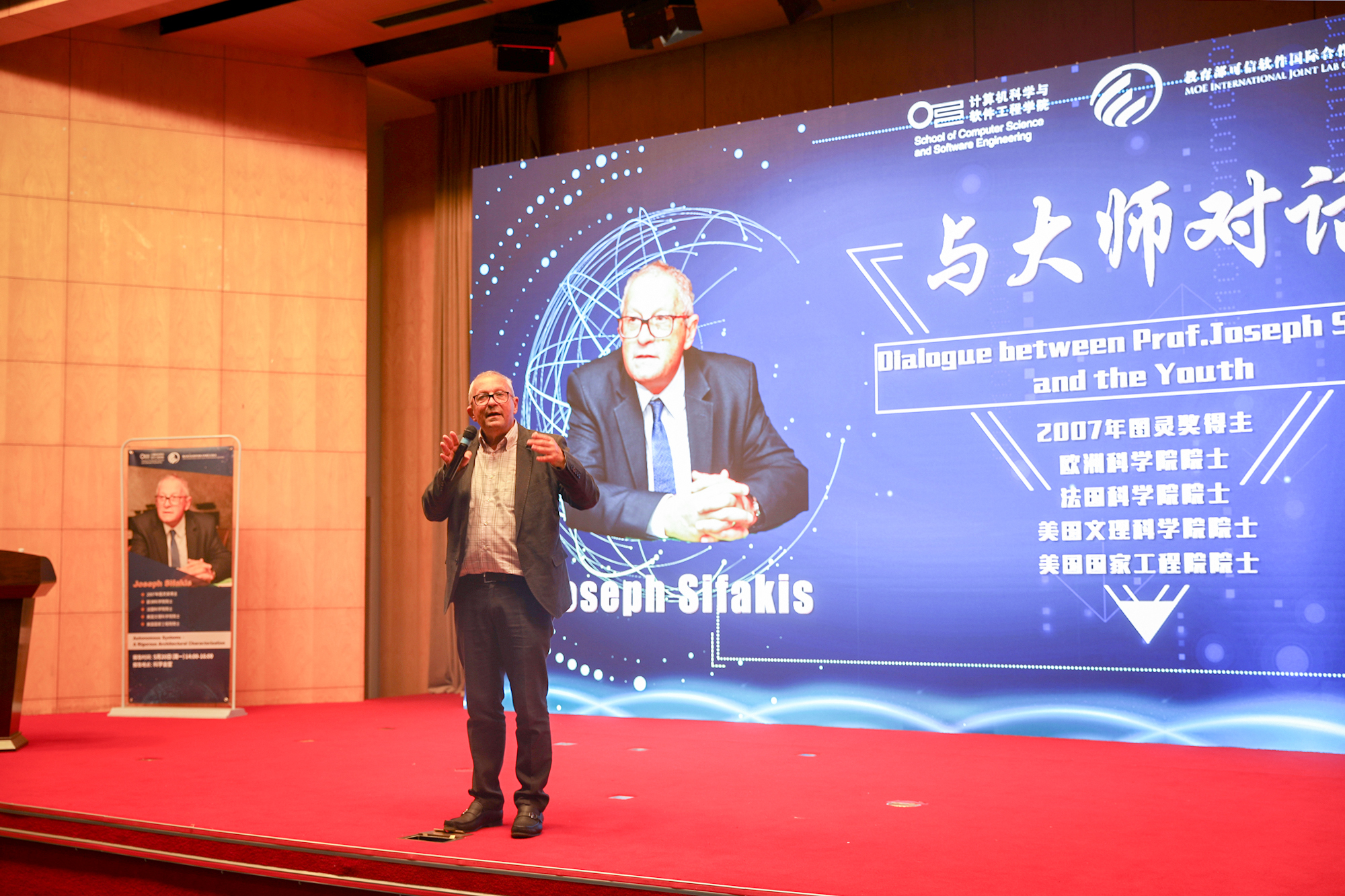
Joseph Sifakis lectured at ECNU this May.
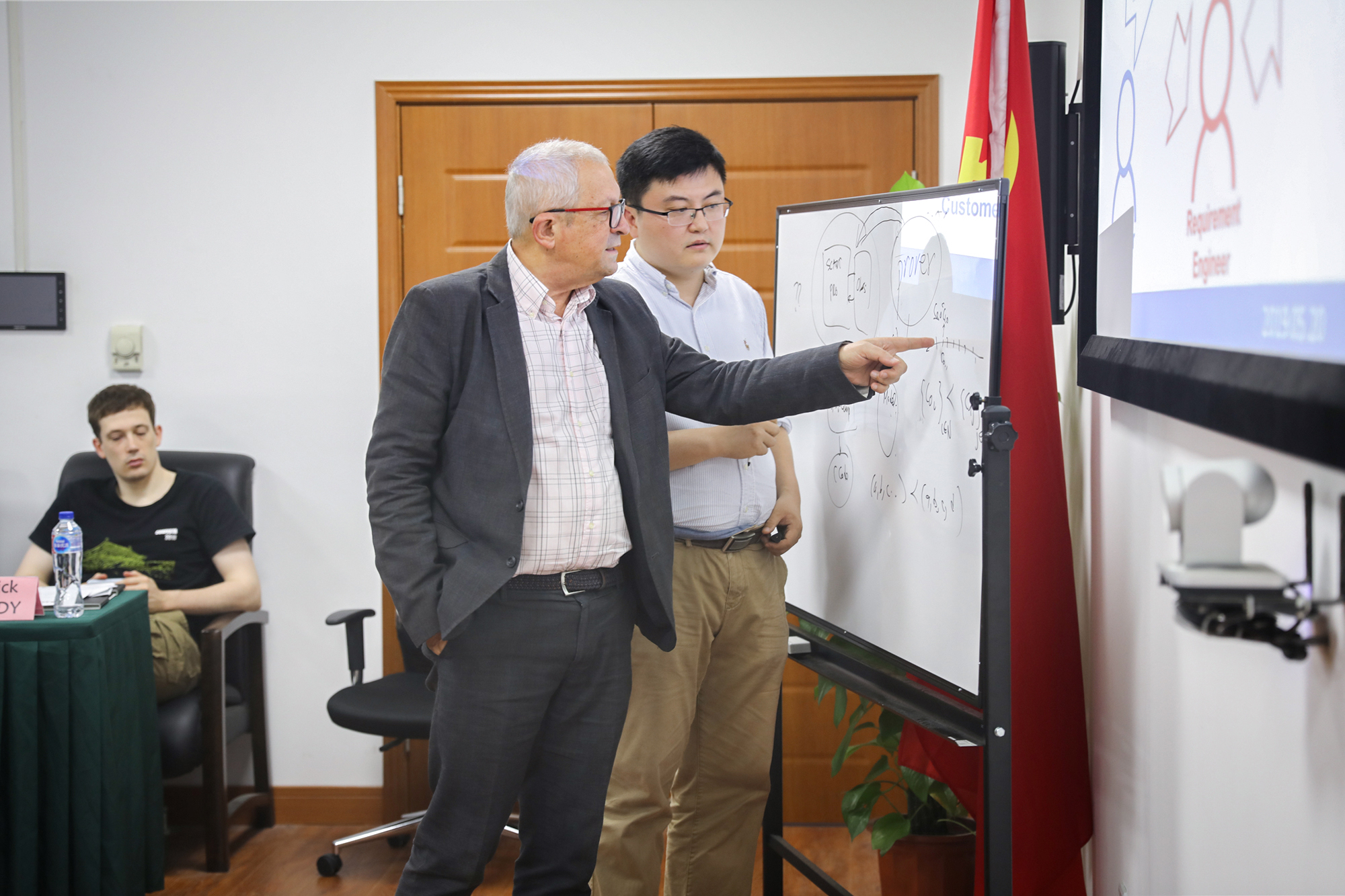
Joseph Sifakisdiscussed academic issues with ECNU's research teams.
Joseph Sifakis is known for his work on model checking and applications for hardware designs. He is also the founder of The Verimag lab, also known as UJF/CNRS/INPG, which engages in projects for embedded systems research.
As early as 2004, Sifakis came to ECNU's Software School by way of an academic exchange tour. In May of this year, he paid a second visit to ECNU and lectured on autonomous systems. During the tour, he was shown around the National Trusted Embedded Software Engineering Technology Research Center and Shanghai Industrial Control System Safety Innovation Platform where he made suggestions on the Software School’s scientific research base.
The three heavyweights in the field of computer sciences and AI—Sifakis, Vardi and Giacomo—have carried out in-depth cooperation with ECNU through joint scientific research programs, talent training activities and achievement transformations.
Edited by Linlan Zhang Proofread by Joshua Mayfield Reviewed by Wenjun Guo

